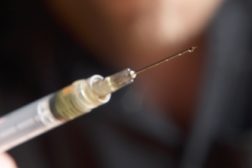Home » Keywords: » world health organization
Items Tagged with 'world health organization'
ARTICLES
Cancer now main cause of death in western Europe
"Shocking" inequalities in treatment, outcomes
September 18, 2016
Measles still taking a heavy toll
But vaccination has saved an estimated 17.1 million lives since 2000
December 8, 2015
Become a Leader in Safety Culture
Build your knowledge with ISHN, covering key safety, health and industrial hygiene news, products, and trends.
JOIN TODAYCopyright ©2024. All Rights Reserved BNP Media.
Design, CMS, Hosting & Web Development :: ePublishing





